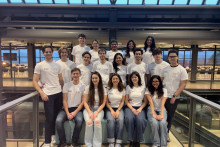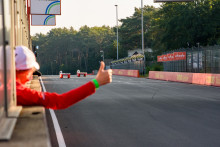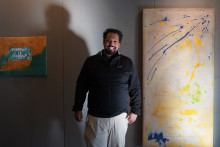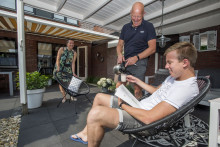Like other student teams, BioSensing competes in a yearly student competition. The team is working towards another edition of SensUs, a biosensing competition which takes place in Eindhoven this year, from 25 to 29 August. ‘A biosensor is a small instrument for the detection of molecules in body fluids’, explains team member Danail Tsanov. ‘Each year, teams develop a prototype for a specific health issue. For now, we are developing a wearable biosensor designed to measure creatine levels to improve kidney health monitoring.’
Long lab days
Tsanov tells that the requirements for the SensUs competition arrive later than the team officially starts in September. ‘We get issued the requirements information package early in January. We then start with the literature review, after which we move on to an ideation phase’, says the master’s student of Biomedical Engineering.
With the competition taking place in two months, the team is currently in the final stages of the preparation. ‘This means we are looking at longer lab days. We are also speaking with stakeholders from the business perspectives to validate criteria; we want to know if there is an actual demand for our biosensor. In this last part we put everything together, which includes chemistry, the business aspect, and the innovation of our solution.’
Market needs
The business aspect is an essential part of the SensUs competition, says fellow team member and PhD student Diana Andreoli. ‘The competition is broken down into four awards, which include innovation, popularity, accuracy and business. It’s important to see how and where the market would be for the device that we are developing.’
Andreoli knows that if there is no market need, then there is little application for the project a team is developing. ‘When it comes to medical devices, there are tough regulations that ensure that it takes years for a device to get approved. You have to think of ways to your business to float until this point.’
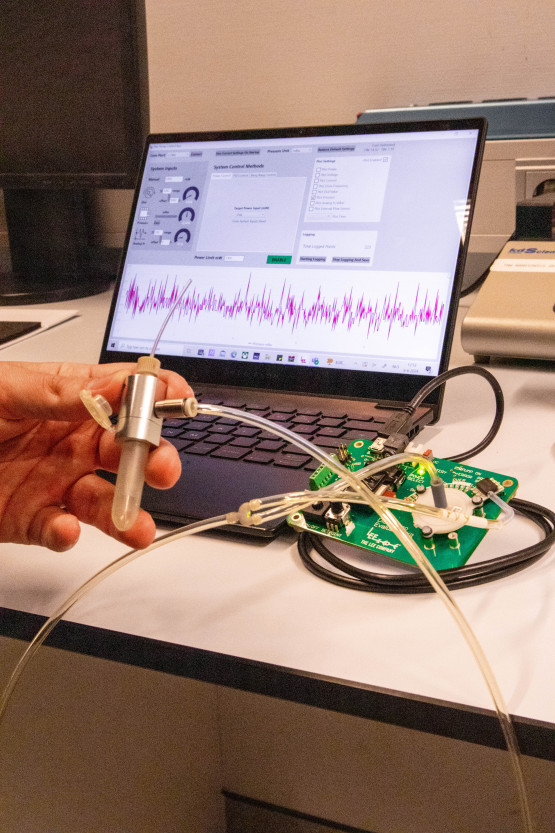
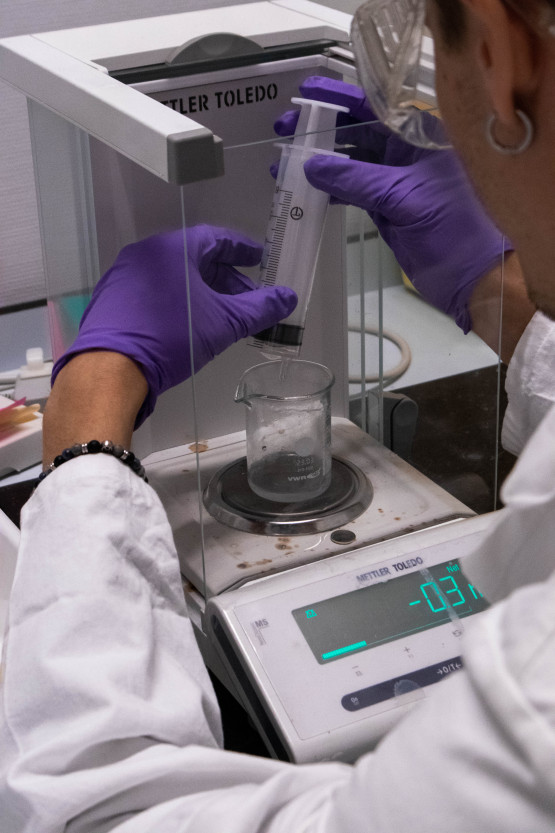
Unknown
BioSensing Team Twente has been in existence since 2023 and is recognized as a student team since last year. According to Tsanov, the team can be best described as ‘a startup in the making’. Due to its young age, the team encountered some typical start-up challenges. Andreoli points out two main issues: ‘The biggest problem we faced was team recruitment. Students didn’t know about us, so we were working hard to raise our visibility both within and outside the UT. Besides, finding a structure that works well for the team was an issue. Working on a challenge like this, you go through different stages such as literature reviews, brainstorming, and lab work. Trying to put this into phases is essential for a good result, it is not just working in a lab from September until August.’
‘In it to win it’
Andreoli and Tsanov are confident that the team will set a good performance this year. ‘We are in it to win it’. ‘The team performed well last year, securing third place in the business aspect competition. We focused on ensuring that all the knowledge that we had build upon is transferred effectively to the new team’, says Andreoli. ‘We are very motivated and we are working on the best output’, adds Tsanov. ‘As the deadline for the competition closes, I don’t think anyone of the team can sleep.’


